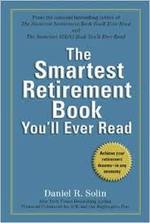 Photo courtesy of Flickr.
Photo courtesy of Flickr.
It's sad that terrible advice is so freely dispensed in tough times. Investors are at their most vulnerable, reeling from the market selloff. Many in the financial media see this as an opportunity to boost ratings and generate revenue for the big brokerage firms that support them with huge advertising budgets. They seem indifferent to the harm caused to those who rely on the misinformation they disseminate.
There are so many examples it's hard to know where to begin. Here's a sampling.
Cramer leads the charge
As usual, Jim Cramer is a reliable source of harmful advice. The headline of a recent article screams: Jim Cramer's Bear Market Shopping List: 15 Stocks to Buy Now. It quotes some of Cramer's meritless musings ("I don't know how we can mount a rally and reverse the direction of so many stocks") and then reveals a screening mechanism he employed to come up with his stock picks. His recommended stocks (that you should "buy now") are "selling below a market multiple of 16x for the S&P 500 with an above-average 3.75% yield and a dividend" that he thinks "is not only sustainable but can grow."
Before you run out and buy these stocks, ask yourself these questions:
1. Cramer is relying on a screening mechanism. What is its track record?
2. What is Cramer's track record for picking stocks? My colleague, Larry Swedroe, reviewed Cramer's stock-picking history and concluded: "There's no evidence of any stock-picking skills -- his picks are neither good nor bad. In other words, it's just entertainment."
3. What is the track record generally for successful stock picking? There's ample evidence it is exceedingly difficult.
"Advice" from the Royal Bank of Scotland
While Cramer's followers are dwindling, and many of them already know it's "just entertainment," the Royal Bank of Scotland is quite another matter. In a move that spooked many investors worldwide, it recently advised its clients to: "Sell everything except high quality bonds. This is about return of capital, not return on capital. In a crowded hall, exit doors are small."
Before you conclude recent market declines validate this advice, ask yourself these questions:
1. Who is the smartest investor in the world? Many would nominate Warren Buffett. Do you think he is selling everything or relying on market forecasts? Here's a quote from him that should give you pause: "Forecasts may tell you a great deal about the forecaster; they tell you nothing about the future."
2. What is the track record of prior forecasts from this bank? If it has some special insight into the future, shouldn't they publish their record of hits and misses? How else can you evaluate their purported expertise?
3. To add value, they would have to be right twice. They need to know when to get out and when to get back in. What are the chances they will be right both times?
Sound advice
Sound advice is hard to come by in the financial media but it does exist. This column in The Wall Street Journal, by respected financial journalist Allan Roth, is a shining beacon in a sea of darkness. Here's Roth's advice:
1. If you are in a position to do so, buy more stocks using stock index funds. It is a good idea to "buy low and sell high."
2. No one can predict the direction of the market. The selloff could be short term or otherwise.
3. Set, and stick to, a suitable asset allocation. Buying stocks in a down market is part of a rebalancing strategy.
Sage counsel, to which I would add this:
Ignore the financial media. Check your portfolio less frequently. Once or twice a year is more than adequate. Instruct your financial advisor that you are sticking with your well-thought-out strategy and confirm your willingness to rebalance and engage in tax-loss harvesting when appropriate.
Spend more time on activities you enjoy. You have no control over stock market volatility. You can control maximizing the activities that give you pleasure and minimizing those that don't.
 Dan Solin is a New York Times bestselling author of the Smartest series of books, including The Smartest Investment Book You'll Ever Read, The Smartest Retirement Book You'll Ever Read and his latest, The Smartest Sales Book You'll Ever Read.
Dan Solin is a New York Times bestselling author of the Smartest series of books, including The Smartest Investment Book You'll Ever Read, The Smartest Retirement Book You'll Ever Read and his latest, The Smartest Sales Book You'll Ever Read.
The views of the author are his alone and may not represent the views of his affiliated firms. Any data, information and content on this blog is for information purposes only and should not be construed as an offer of advisory services.
